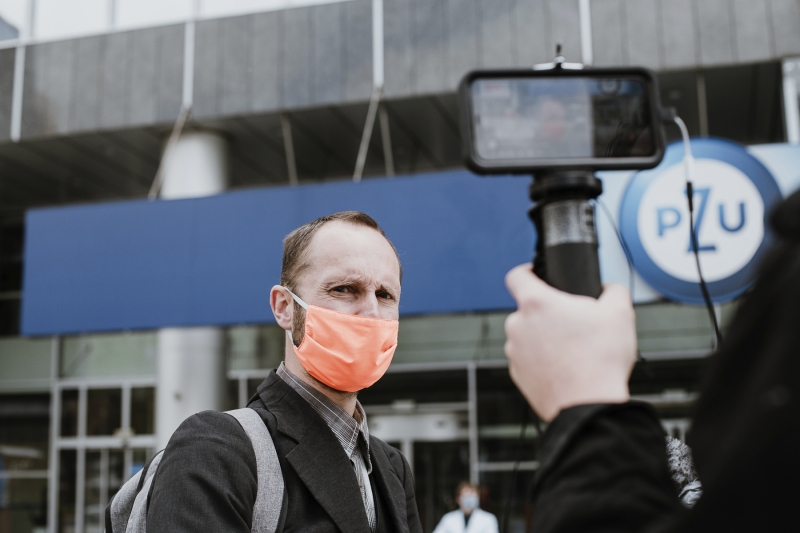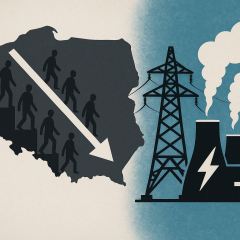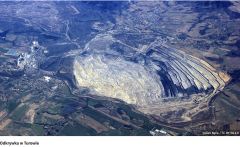Author: Kuba Gogolewski
Finally, after almost two months, I was able to obtain answers to questions I’ve posed to the Management Board of PZU during the General Annual Shareholder Meeting on 26.05.2020: https://www.pzu.pl/_fileserver/item/1525384
I'll summarize the company's message: "there is no problem, we're in control of the situation and we're doing everything according to the law." However, PZU not only HAS a problem, but also it IS a problem itself for the climate, insuring the vast majority of the Polish coal sector: both power plants (including the largest ones in Bełchatów, Opole, Rybnik and Kozienice) and mines. It also actively insures the activities of other fossil fuel giants in Poland - state-owned PKN Orlen and PGNiG.
The climate crisis is the greatest challenge to be faced by the Polish society and economy. Its negative impact on all aspects of life will grow from year to year. PZU's attitude is therefore not only short-sighted, but also extremely harmful.
Fortunately, in spite of having the Polish Ministry of State Assets as the main shareholder, PZU is also a part of the European and global financial market. The consequences of this are twofold. On the one hand, PZU is supervised and is regulated by the EU. The EU regulators will increasingly force financial markets in the member countries to take action in reducing the risk of rapid depreciation of the assets of fossil fuel companies (basing their activities on the extraction, trading and sale or combustion of fossil fuels). PZU will have to comply with these regulations.
On the other hand, PZU requires reinsurance coverage for its activities. Rapid changes on the global financial markets will increase costs for insurers who are too exposed to climate risk. At the same time, the availability of reinsurance for such insurers will decrease over time.
Currently, PZU uses mainly reinsurance based on the British Lloyd's market. As a member and shareholder of the 2121 syndicate on the Lloyd's market, managed by Argenta, PZU has access to the reinsurance offering provided by specialized reinsurance companies operating on the Lloyd’s market. However, as a result of social pressure, the LLoyd's syndicates are also withdrawing from involvement in risky and socially unpopular projects that destroy the climate, the environment and health. This can be seen in the campaign activities aimed at the syndicates that are insuring the Carmichael mine in Australia which belongs to the Indian Adani Group or the Trans Mountain pipeline in the United States.
In an interview with Parkiet - a Polish financial newspaper - in mid-June 2020, Wojciech Dąbrowski CEO of the biggest Polish utility coal-heavy PGE explained the problems with reinsurance of coal related risks related to the activities of companies such as PGE: "We also have a problem with insurers. PZU does not deny us a guarantee for the moment, but it has many reinsurers from abroad, mainly from the UK, and they are making it difficult to accept of companies like ours".
So far, PZU has no policy to limit coal investments nor in other high-carbon sectors. It also has no climate restrictions for its insurance business and is able to underwrite new power plants and coal mines in Poland. For illustration PZU was the leader of a consortium underwriting the construction of the 1GW Ostrołęka C hard-coal power plant whose construction got cancelled this spring. The undertaking exposed taxpayers to over 200 mln euro loss.
The role of PZU in fueling the climate crisis is increasingly understood by activist movements as well. The hypocrisy of this most recognizable brand in Poland has already been criticised by Earth Strike from Łódź and Extinction Rebellion. The interest in PZU will grow as the destructive impact of the company's actions on the climate and the environment becomes increasingly evident. I hope that legal consequences will also start to be drawn against members of the management and supervisory board of PZU, who by their inaction expose the Polish economy and Polish citizens to losses and an unstable future.








